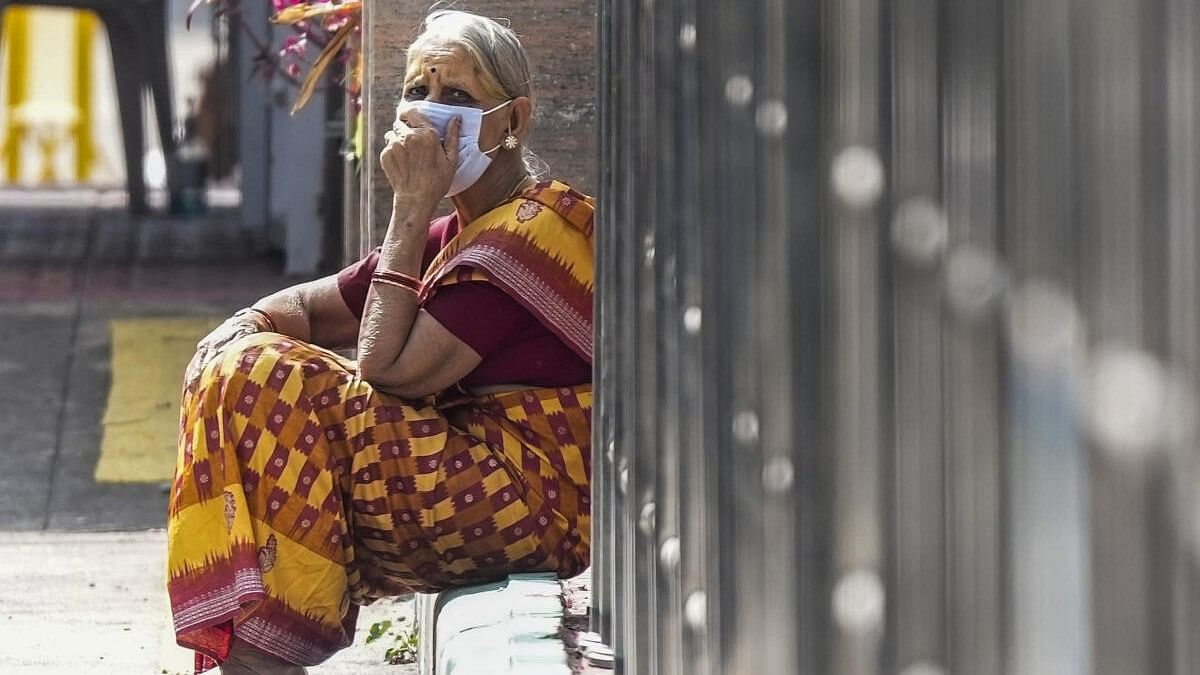
Members of low-income groups without health insurance were seen as depending more on bus services and multiple transport modes or delaying hospital visits. (Representative image)
Credit: PTI Photo
Bengaluru: Efficient transport systems are becoming increasingly imperative for the older population to access healthcare in India’s busy, burgeoning cities. A recent survey-based research article has highlighted mobility gaps in Bengaluru that distance sections of this population from healthcare services.
Unreliable modes of transport from Bengaluru’s peripheral areas were cited among the major barriers. The respondents listed long waiting time for buses (15 to 60 minutes), dependence on multiple transport modes to reach Metro stations – that added travel time – and frequent cancellations by drivers in app-based services as grouses.
Some of them reported “rude and disrespectful” behaviour among the auto-rickshaw drivers and perceived Metro services as being availed more by younger people from higher-income groups and office workers.
The article, titled ‘Unpacking the role of transport inequalities among older adults for accessing healthcare in Bengaluru’, was published in the international journal Global Public Health, in October this year.
The paper was based on interactions from 2020, with 60 men and women from diverse socio-economic groups, aged above 50 years, and residing in Bengaluru’s central and peripheral areas.
A 62-year-old man was quoted in the paper as saying that he missed an appointment for his eye surgery because two cab drivers canceled his rides. Living in the outskirts helped a diabetic woman, 66, save on the house rent but made access to bus services difficult. The respondent depended on buses to travel to hospitals in the city; she lived with her husband who suffered from a chronic illness, and her unemployed son.
Divya Sussana Patil, a research fellow at Prasanna School of Public Health, Manipal Academy of Higher Education (MAHE), and first author of the study, said the findings had income and gender as important markers.
Access limited, rides unsafe
In middle-income groups, accessing healthcare by personal vehicles or taxis did not involve financial stress. Members of low-income groups without health insurance were seen as depending more on bus services and multiple transport modes or delaying hospital visits.
The high costs of healthcare in the city forced some to visit suburban hospitals and clinics. Since connectivity to these facilities is limited, people formed groups to hire taxis and share the expenditure.
“The older women said they felt unsafe while travelling after dark,” Divya told DH. It was noted that these barriers made people opt for self-care or locally prescribed medication that comes with the risk of aggravating underlying ailments.
The paper recommended interventions that included designing integrated health-transport policies, strengthening public transport services in the peripheral areas, and implementing Metro fare concessions.
Though the survey data was collected during the first Covid wave, the responses pertained to the pre-pandemic period. Researchers Ajay Bailey (Utrecht University, the Netherlands), Sobin George (Institute for Social and Economic Change, Bengaluru), Martin Hyde (University of Leicester, UK) and Lena Ashok (MAHE) are co-authors of the paper.
The research was conducted as part of the EQUIMOB (Inclusive Cities through Equitable Access to Urban Mobility) project, funded by the Dutch Research Council and Utrecht University, the Netherlands.